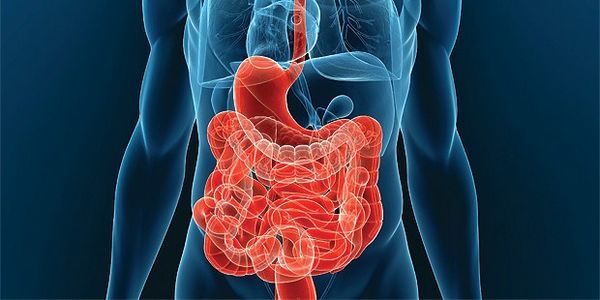Bowel incontinence: what is this, causes, symptoms, diagnostics, treatment, prevention

Bowel incontinence; Uncontrollable passage of feces; Loss of bowel control; Fecal incontinence; Incontinence – bowel
What is bowel incontinence?
Bowel incontinence, also called fecal incontinence, is the inability to control bowel movements or the passage of stool from the rectum. This is a common and often embarrassing condition., that affects people of all ages, but more common in older people.
Bowel incontinence can range from occasional leakage of stool to complete loss of bowel control.. exist as physical, as well as the psychological causes of this condition, and treatments available for all types.
Causes of bowel incontinence
Causes of urinary incontinence can be different., but the most common are:
- Muscle or nerve damage. Damage to the muscles or nerves of the rectum may interfere with the ability to hold stool in the rectum.
- Disease. Diseases of the digestive system, such as Crohn's disease, ulcerative colitis or celiac disease, can lead to bowel incontinence.
- Medicines. Some medications, such as anticholinergic and opioid pain medications, may cause diarrhea and increase the risk of urinary incontinence.
- Delivery. Childbirth can damage the rectal muscles or put pressure on the rectum, making it difficult to control bowel movements.
- Aging. As you get older, your rectal muscles may weaken., making it difficult to control bowel movements.
- Chronic constipation. Chronic constipation can cause excessive straining during bowel movements, which can damage the rectal muscles.
- Neurological disorders. Neurological disorders, such as stroke and multiple sclerosis, can damage nerves, controlling bowel movements.
- Radiation therapy. Radiation therapy for prostate or rectal cancer can damage rectal muscles and nerves, leading to urinary incontinence.
- Surgery. Rectal surgery, anus or pelvic organs can damage rectal muscles, leading to urinary incontinence.
Symptoms of bowel incontinence
Bowel incontinence symptoms can vary depending on the cause. The most common symptoms of fecal incontinence are:
- Passing a small amount of stool during such activities, How cough, laughing or sneezing.
- Difficulty controlling the urge to defecate or feeling the need to rush to the bathroom.
- More frequent stools, than usual, or diarrhea.
- Passing loose or watery stools without warning.
- Cramping or pain in the abdomen.
When to contact a healthcare professional
If you are experiencing any symptoms of bowel incontinence, see a doctor for evaluation. He may also refer you to a gastroenterologist or colorectal surgeon for further evaluation and treatment..
Diagnosis of bowel incontinence
To diagnose fecal incontinence, your doctor will first take a thorough medical history and perform a physical examination. He can also order tests, such as colonoscopy or sigmoidoscopy, to look for abnormalities in the colon. Your doctor may also order blood tests, to check for infections or diseases, which can cause incontinence.
Treatment of bowel incontinence
Urinary incontinence treatment depends on the underlying cause. If incontinence is caused by a medical condition, it can usually be treated with medication or lifestyle changes. Urinary incontinence treatment may include:
- Medicines. Medicines can be used to treat many underlying diseases, causing fecal incontinence.
- Diet and lifestyle changes. Your doctor may recommend dietary and lifestyle changes, to control symptoms. For Example, he may recommend avoiding foods, which can cause diarrhea, drink plenty of fluids and exercise regularly.
- Pelvic floor exercises. Pelvic floor exercises, also called Kegel exercises, help strengthen rectal muscles and improve bowel control.
- Biofeedback. Biofeedback is a type of therapy, in which machines are used, to help you become aware of your body and that, how it reacts to certain actions. It can help you learn to control your pelvic floor muscles and improve bowel control..
- Surgery. In some cases, surgery may be recommended to repair damaged rectal muscles or nerves..
Home treatment for bowel incontinence
There are several home remedies, which may help improve bowel control and reduce urinary incontinence. These include:
- Changes in diet. Eating a high-fiber diet may help keep soft stools and control diarrhea.
- Avoid constipation. Eating a high-fiber diet and drinking plenty of fluids can help prevent constipation., which can aggravate urinary incontinence.
- Pelvic floor exercises. Pelvic floor exercises help strengthen rectal muscles and improve bowel control.
- Avoid Triggers. Avoid products and activities, which can cause bowel movements, it can help reduce incontinence.
- Reduced stress. Learning Stress Reduction Techniques, such as yoga or meditation, can help reduce stress, which can aggravate urinary incontinence.
Prevention of bowel incontinence
Although there is no reliable way to prevent bowel incontinence, there are several steps, you can take, to reduce the risk. These include:
- Follow a healthy diet. Eating a healthy, high-fiber, low-fat diet may help keep soft stools and reduce diarrhea..
- Maintaining water balance. Drinking plenty of fluids can help relieve constipation, which can aggravate urinary incontinence.
- Physical exercise. Regular exercise helps strengthen pelvic floor muscles and reduce the risk of urinary incontinence.
- Smoking cessation. Smoking increases the risk of urinary incontinence, so quitting smoking can reduce this risk.
- Avoid straining during bowel movements. Stress can weaken rectal muscles and increase the risk of urinary incontinence.
Conclusion
Bowel incontinence is a common condition, difficult to deal with. This can range from occasional stool leakage to complete loss of bowel control.. Although there is no reliable way to prevent bowel incontinence, risk can be reduced, changing lifestyle. If you are experiencing any symptoms of urinary incontinence, see a doctor for evaluation and treatment.
Used sources and literature
Madoff RD, Melton-Meaux GB. Diseases of the rectum and anus. In: Goldman L, Schafer AI, eds. Goldman-Cecil Medicine. 26th ed. Philadelphia, PA: Elsevier; 2020:chap 136.
Rao SSC. Fecal incontinence. In: Feldman M, Friedman LS, Brandt LJ, eds. Sleisenger and Fordtran’s Gastrointestinal and Liver Disease. 11th ed. Philadelphia, PA: Elsevier; 2021:chap 18.
